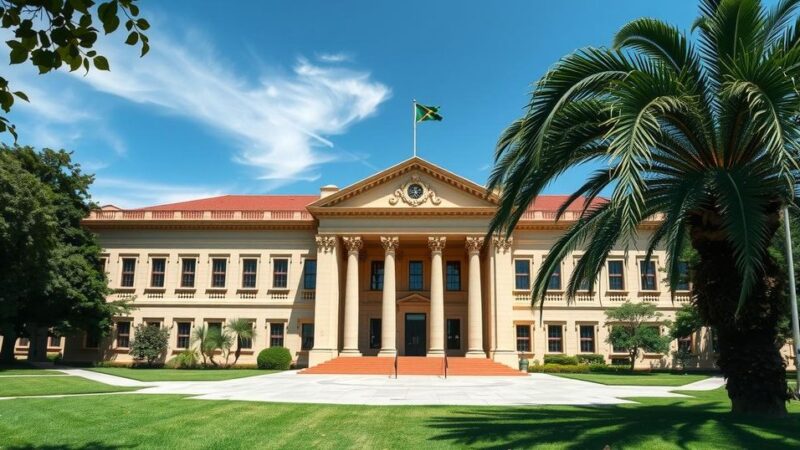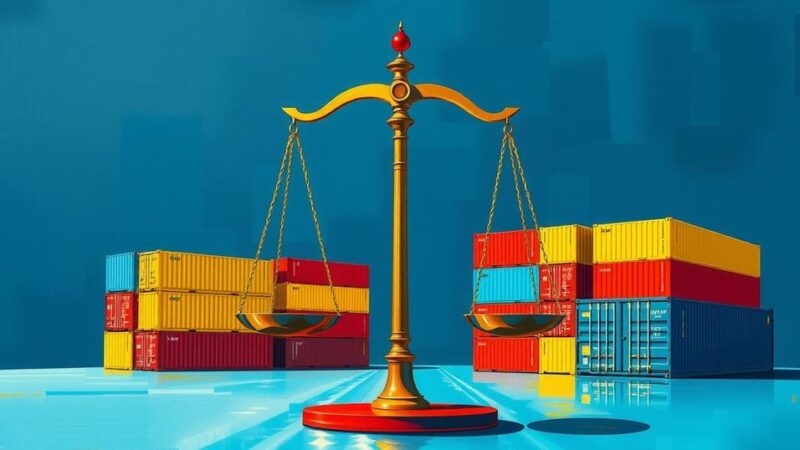Donald Trump has initiated a tariff dispute with Colombia after the country refused to accept U.S. military flights carrying deported migrants. He announced a 25% tariff and additional sanctions against Colombian officials. In response, Colombian President Gustavo Petro criticized Trump’s actions, threatening retaliatory measures while urging open arms to international cooperation. This conflict raises concerns for U.S.-Colombia relations, particularly regarding migration management amid escalating tensions.
In the early days of his presidency, Donald Trump initiated a tariff dispute with Colombia, one of the United States’ key allies in South America. The conflict arose after Colombia denied entry to two U.S. military flights carrying deported migrants. In response to this action, Trump proclaimed, “We will not allow the Colombian government to violate its legal obligations with regard to the acceptance and return of the criminals they forced into the United States.”
Trump announced a 25% tariff on Colombian goods, alongside measures such as a travel ban and immediate visa revocations for Colombian officials and their supporters. His decision reflects a shift in focus from domestic immigration policies to trade, using Colombia as an example for other nations that fail to comply with U.S. regulations. Appearing to emphasize cooperation, Trump is sending a stark warning: non-compliance will incur significant consequences.
Colombia faces an uphill battle as President Gustavo Petro swiftly retaliated, launching his own verbal counterattack. Petro condemned Trump’s actions on social media, claiming the U.S. leader would “wipe out the human species because of greed” while insinuating that Colombians were perceived as an “inferior race.” He vowed to resist Trump’s economic aggression and highlighted Colombia’s readiness to engage with the global community.
As the U.S. imports a substantial amount of Colombian goods, particularly coffee, the sanctions could have severe economic repercussions for both nations. Colombia’s exports valued at nearly $2 billion could be negatively affected as importers might seek alternative suppliers. Despite the tariffs, Petro reassured he would accept deported Colombians under humane conditions, even offering alternative transport through his presidential aircraft.
Amidst this escalating diplomatic standoff, it remains unclear whether Trump’s administration can effectively collaborate with Colombia to manage migration, as they have previously intended. Efforts to address the flow of migrants, particularly through treacherous routes such as the Darien Gap, may be hindered by Trump’s measures.
Nevertheless, there appears to be a potential path for de-escalation, provided that national pride and egos do not obstruct discussions. The initial tariffs represent merely the beginning of a broader negotiation challenge, showcasing Trump’s approach to international relations with far-reaching implications.
Donald Trump’s presidency marked a transition into a more aggressive foreign policy stance, particularly highlighted by his early actions concerning international trade and immigration. The recent tariff dispute with Colombia underscores this shift, where a refusal by Colombia to comply with U.S. deportation policies sparked retaliation from the Trump administration. This incident not only reflects America’s influence over its allies but also presents complexities in dealing with global migration challenges, emphasizing the need for collaborative efforts to tackle such issues.
The unfolding tariff dispute between the United States and Colombia illustrates Trump’s hardline stance towards nations that do not align with U.S. policies. Both countries must navigate this situation carefully to avoid economic repercussions while finding common ground on immigration issues. Moving forward, the ability to de-escalate tensions will rely on diplomatic negotiations and a willingness to cooperate, despite personal and national pride.
Original Source: www.bbc.com




